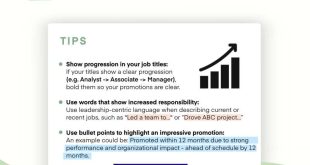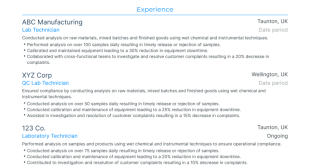What Classes Do You Need To Become A Doctor – If you want to make a difference in the lives of others, why not make it a career? Earning a nursing degree is without a doubt one of the biggest educational investments you can make these days. Nursing as a profession is a rewarding career, filled with many opportunities, challenges and rewards.
If you’re in high school, useful courses to consider are science, especially biology, anatomy and physiology, and chemistry. You will also need math/algebra and excellent written and verbal communication skills. If you have graduated from high school and are considering a nursing program, required classes for most programs may include: Chemistry, Anatomy and Physiology, Microbiology, Nutrition, Algebra and Statistics, Life Development, English Composition , sociology and psychology. The number of terms depends on the specific program you choose. If you are a nurse interested in Advanced Practice Nursing (APRN), a Registered Nurse (RN) license is a prerequisite for the APRN licensing/authorization program.
What Classes Do You Need To Become A Doctor
The two most common types of nursing programs include practical nurses (PN) and pre-licensure nursing (BSN). Education requirements are different for each program. The PN program is the fastest option, lasting 12-18 months. Pre-licensing programs range from a two-year associate degree (ADN) or a four-year bachelor’s degree (BSN). Earning a Bachelor of Science in Nursing with higher education can be a springboard to additional career opportunities, such as advanced practice nurses (APRNs) (eg, nurse practitioners [NPs], nurse midwives [NMs], and certified Registered nurse anesthetists [CRNAs]). The length of the program may vary depending on whether the person is enrolled in school full-time or part-time.
Becoming A Mental Health Nurse In Australia
Each program has slightly different application processes and requirements. Programs should be contacted directly for additional program details. Inquiries about admission should be made as far in advance as possible.
After graduation, candidates must pass the NCLEX exam. Mississippi is an NLC (Nursing Licensure Agreement) state. This means that if a nurse’s primary residence is Mississippi, she can practice in any of the 32 compact states.
The Mississippi Board of Nursing certifies qualified registered nurses to work as Advanced Practice Registered Nurses (APRNs) in the state. To become an advanced practice registered nurse (APRN), you must complete the following steps.
You must study towards a recognized concentration. The Mississippi Board of Nursing has approved several programs to meet the requirements. Programs must be fully accredited by a recognized national accrediting agency. In addition, the board established specific curriculum requirements for accepted specialty nursing programs. APRNs in Mississippi are automatically licensed.
Three Steps To Plan For Naturopathic Medical School
If you want to work as a nurse practitioner (NP), you must have a nursing specialty (eg, family/individual life, adult/gerontology, pediatrics, neonatology, women’s health, psychiatric/mental health). You should complete the concentration in which you intend to practice.
The following national certification agencies are recognized by the Mississippi Board of Nursing (note that each agency has specific registration requirements): • ANCC (American Nurses Credentialing Center), which recognizes adult nurse practitioners, critical care nurse practitioners (ACNP), Gerontology Nurse Practitioner (GNP), Family Nurse Practitioner, Adult Psychiatric Mental Health Nurse Practitioner (PMHNP), Pediatric Nurse Practitioner (PNP), and Family Psychiatric Mental Health Nurse Practitioner (PMHNP). • AANP (American Academy of Nurse Practitioners), which recognizes adult nurse practitioners and adult-gerontology primary care NPs. AACN (American Association of Critical Care Nurses), which identifies critical care nurse practitioners. NCC (National Corporation for Certification of Obstetric, Gynecological and Neonatal Nursing Specialties), which recognizes Women’s Healthcare Nurse Practitioners (WHNP) and Neonatal Nurse Practitioners (NNP). • PNCB (Pediatric Nursing Certification Board), which recognizes pediatric nurse practitioners in acute care and primary care. • AMCB (American Midwifery Certification Board), which recognizes the Certified Nurse Midwife (CNM). • National Board for Certification and Recertification of Nurse Anesthetists (NBCRNA), which recognizes certified registered nurse anesthetists (CRNAs).
You must complete the initial application for certification to practice as an APRN and include all necessary documents and fees. However, if you have not yet obtained national or state certification but still want to practice, you can apply for graduate certification. This process will get you the certification 120 days from the day you complete your undergraduate degree. Additionally, you must demonstrate that you are in the process of becoming fully certified.
APRN certificates must be renewed semi-annually by December 31, along with RN licenses. Both renewals can be completed online. The Mississippi Board of Nursing has established a requirement for all APRNs to participate in 40 CE (continuing education) contact hours related to their specialization every two years. Two of these hours must be on controlled substance pharmacology if you have received permission to prescribe these substances. APRN and RN certificate renewal costs are $100 each. Additionally, you must complete the appropriate paperwork to renew your license. Whether you want to earn college credit in high school, find a subject you want to study in college, or put together an impressive college application, many students struggle to take Advanced Placement (AP) or International Baccalaureate (IB) classes. is IB). We’re here to help you understand the pros and cons of each program, and how these two educational paths can be used to lead you to your major goals.
Minimum High School Graduation Requirements
Advanced Placement programs are primarily run by the College Board in the United States and Canada; Founded in 1955, this program gives students the opportunity to take college-level courses in high school and even earn college credit with participating universities, based on their AP exam scores.
Schools may offer AP classes without offering an AP diploma, but there are two types of diplomas students can earn. The AP Capstone Diploma focuses on research-style classes and seminars and can be taken at a participating school, while the AP International Diploma is offered to international students and students with the United States who are going abroad for their studies. They intend to.
AP classes are widely accepted as a great way to challenge yourself and delve deeper into a particular subject. Each of the AP classes also has a corresponding AP exam; Depending on your AP exam score, you may be able to earn college credit. Students who want to shorten their time in college or free up their schedule to take more classes can benefit from taking AP classes in core subjects if their prospective school accepts AP credit.
Another major benefit of Advanced Placement is that you don’t have to take a specific AP class to actually take the AP subject exam. So, if you’re homeschooled or if your school doesn’t offer a specific AP class, you can still register for the exam and try to prove your knowledge in exchange for future credit.
Things To Do Before School Starts
AP is a very flexible program, and while students at participating schools can choose to earn either the AP Capstone Diploma or the AP International Diploma (APID), most schools do not require students to take specific AP classes to graduate. there is This means that you can pick and choose the most interesting course for you and your interests.
If your school does not offer all 38 classes, you can work with your guidance counselor to see if supervised self-study is an option for you.
One of the main disadvantages of the AP program is that it is primarily focused on students who want to attend universities and colleges in the United States and Canada. That doesn’t mean students with international ambitions can’t benefit from AP classes!
Colleges and universities in many countries outside of the United States and Canada accept AP credit, but students planning to visit a college abroad should check to see if their prospective schools accept AP before committing to AP classes. There are credit transfer policies.
Pathway To Nursing
Although a flexible schedule is a positive for some students, one drawback of AP classes is that they don’t have to fit into a consistent schedule. This means that while there are many types of AP classes, including AB (Freshman Year) and BC (Sophomore Year) courses of varying levels of depth and academic rigor, you may not always qualify for both levels. Development in a given period. subject
Still, all this means is that you can pick and choose classes within AP and still graduate with a great profile for further study, even if the courses don’t necessarily fit as well as they would in another curriculum.
Students looking for courses that are longer than one year or classes that focus on interdisciplinary links between courses should consider whether AP is right for them.
The International Baccalaureate (IB) was founded in Geneva in 1968 and has been offered in the United States since 1975. There are more than 2,000 IB programs in the United States and another 3,000 in other countries around the world.
The Path To Becoming A Nurse Practitioner (np)
Like AP classes, IB classes are rigorous and focus on developing the skills, knowledge, and mindset necessary for students to succeed beyond high school.
Like AP classes, many colleges and universities
What do you need to study to become a doctor, what classes do you need to become a doctor, what classes do i need to become a doctor, what do you need to become a doctor, what classes do i need to become a nurse, what classes do i need to become a psychologist, what undergraduate degree do you need to become a doctor, classes you need to take to become a doctor, what classes do you need to become a nurse, what classes do i need to become a teacher, what degree do you need to become a doctor, subjects you need to become a doctor



